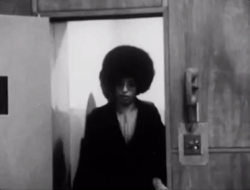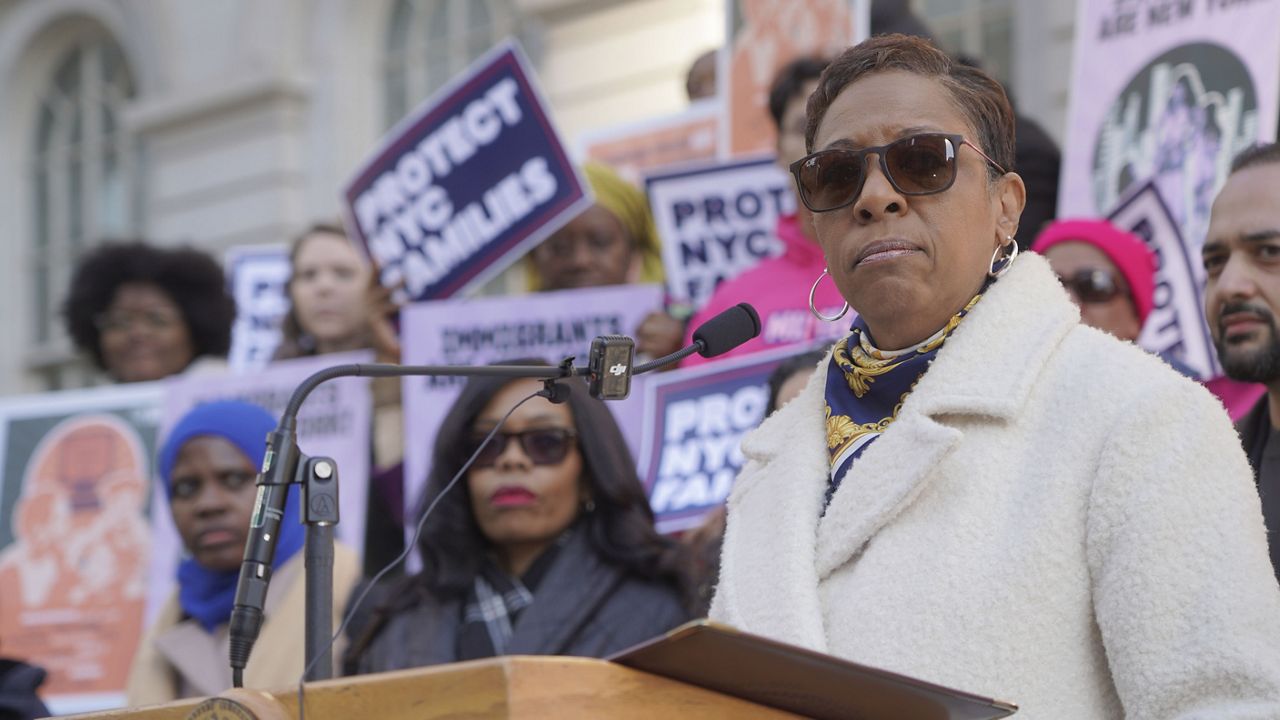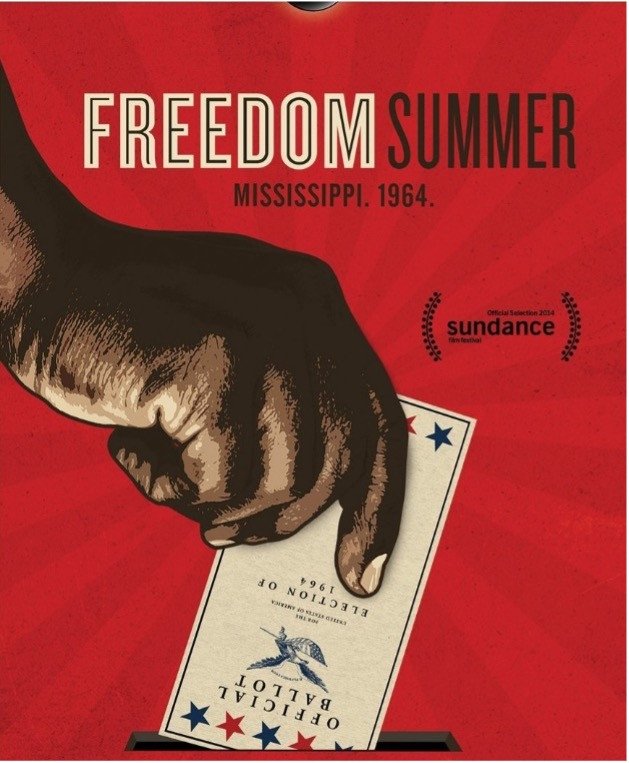- BlackVoter.Org
- Posts
- BlackVoter.Org
BlackVoter.Org


In response to recent ICE raids and heightened fears in immigrant communities, City Council Speaker Adrienne Adams has announced new initiatives to assist those affected. Referring to President Trump as "Felon 47," Adams critiqued his actions, calling them anti-democratic and detrimental to family unity.
In a partnership with the New York Immigration Coalition, the Council is allocating $2 million to over 60 nonprofit organizations, aimed at providing legal support, rapid responses, and essential training. Additionally, a free interpreters bank will help non-English speakers navigate city services and legalities.
The announcement comes amid criticism of Mayor Eric Adams for his lack of public response and his alleged cooperation with federal immigration efforts. Advocates emphasize the importance of community support and accessibility during these challenging times, highlighting the necessity of creating a safe environment for all residents.

Kendrick Lamar's journey from being a powerful symbol of the Black Lives Matter movement to headlining the Super Bowl halftime show encapsulates a fascinating evolution. Recognized as the lyrical voice of a generation, Kendrick has navigated the complex intersections of music, politics, and identity.
While his early work, particularly “To Pimp a Butterfly,” firmly aligned him with social activism, his more recent projects and public appearances have sparked questions about the clarity of his political messages. As he prepares for the Super Bowl, critics and fans alike are pondering the implications of his association with the NFL—a platform notorious for silencing dissent.
With his music evolving towards introspection and personal storytelling, his role as a political figure seems increasingly ambiguous. Kendrick’s journey serves as a reflection of changing societal dynamics, leaving audiences both captivated and curious about where his art—and activism—will go next.

Get ready for an inspiring event as the Sheila Y. Oliver Center for Politics and Race in America at Rutgers-Newark hosts Joy Reid on February 1, 2025! In celebration of Black History Month, the acclaimed television host and author will delve into “The Intersections of Race, Politics, and the Media in the Aftermath of the 2024 Elections.
” With her sharp insights from MSNBC’s The Reidout and the rich narratives found in her books—including "Fracture" and "The Man Who Sold America"—Reid is sure to ignite thought-provoking discussions. Following her lecture, she’ll engage in a moderated Q&A session with center director James Jones, providing an excellent opportunity for attendees to explore these critical topics further.

Join us for an enlightening evening on February 27, 2025, as California Lutheran University hosts "Freedom Summer: The History and Legacy of the 1964 Mississippi Summer Project." Esteemed historian Dr.
James T. Campbell, an expert on civil rights and African American history, will dive deep into the pivotal events of Freedom Summer, exploring its monumental impact on voter registration and civil rights activism.
As the Edgar E. Robinson Professor at Stanford University and a seasoned author, Dr.
Campbell brings his extensive knowledge and poignant insights to the forefront of this important discussion. Don’t miss this opportunity to engage with history and understand the legacies that continue to shape our society.
Best of all, the event is free! For more information, reach out to Michaela Reaves at [email protected].

In an eye-opening analysis, Greg Palast reveals how vote suppression tactics played a decisive role in the recent election results, suggesting that if all eligible voters had been allowed to cast their ballots, Kamala Harris would have triumphed over Donald Trump. He cites staggering statistics: over 4.
7 million voters were purged, while 2.1 million mail-in ballots faced disqualification for minor errors, disproportionately affecting voters of color.
With self-appointed "vigilantes" challenging hundreds of thousands of voter registrations, the implications are clear—systematic disenfranchisement was at play, reviving historical injustices akin to Jim Crow laws. Through meticulous data analysis, Palast argues that the robust voter suppression strategies not only hampered turnout but potentially altered the election's outcome.
As he calls for action against these suppressive measures, Palast’s piece serves as a potent reminder of the ongoing struggle for voting rights in America.

In a lively interview with Charlamagne Tha God, Vice President Kamala Harris expressed her commitment to studying reparations for slavery and voiced her views on the upcoming presidential election, framing it as a critical choice between progress and “fascism”—a term she agreed accurately describes Donald Trump’s vision. With Election Day approaching, Harris emphasized outreach to Black voters, particularly Black men, amidst a tense political climate.
She affirmed her support for national marijuana legalization, advocating for equality in the cannabis industry. Harris also pushed back against criticisms of her record, attributing doubts to "mis- and disinformation," while highlighting her achievements regarding funding for historically Black colleges and health care access.
Acknowledging the comedic representation of her in pop culture, Harris demonstrated grace in discussing her portrayal by Maya Rudolph on "SNL," affirming the importance of humor in politics. As she campaigns for the presidency, Harris reiterates her focus on policies benefiting Black Americans.

In a recent Capitol Hill visit, rapper 50 Cent (Curtis Jackson) voiced his belief that Black men are increasingly identifying with former President Donald Trump ahead of the November election. Joined by civil rights attorney Ben Crump, 50 Cent drew attention to the socio-political landscape, suggesting that the prevalence of RICO charges, notably against Trump for alleged election interference in Georgia, resonates with many Black men.
While he stopped short of declaring his own political allegiance, 50 Cent's comments reflect a dynamic shift in voter sentiments. As President Biden’s campaign ramps up efforts to connect with Black voters—who were pivotal to his 2020 victory—Trump’s team is equally eager to expand its outreach.
A recent poll indicates Biden maintains a lead among Black voters, signaling an election landscape as complex as ever. The upcoming months promise to be charged with evolving alliances and unexpected endorsements.